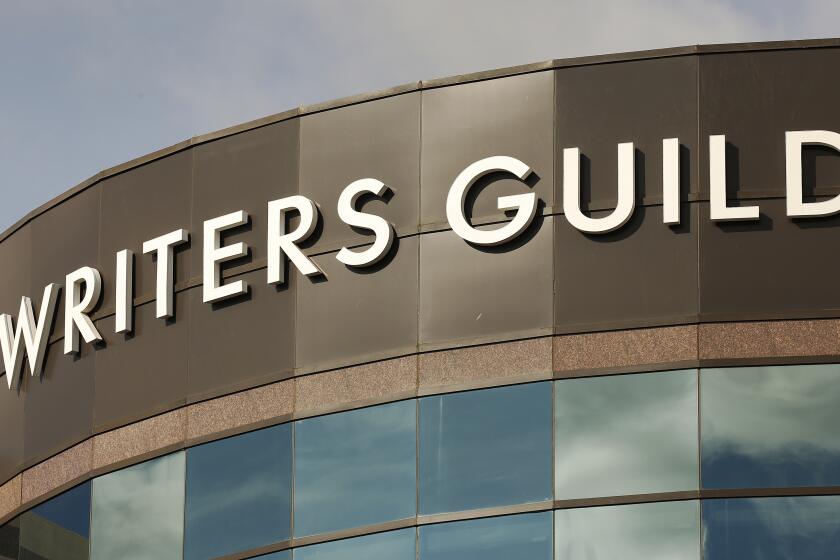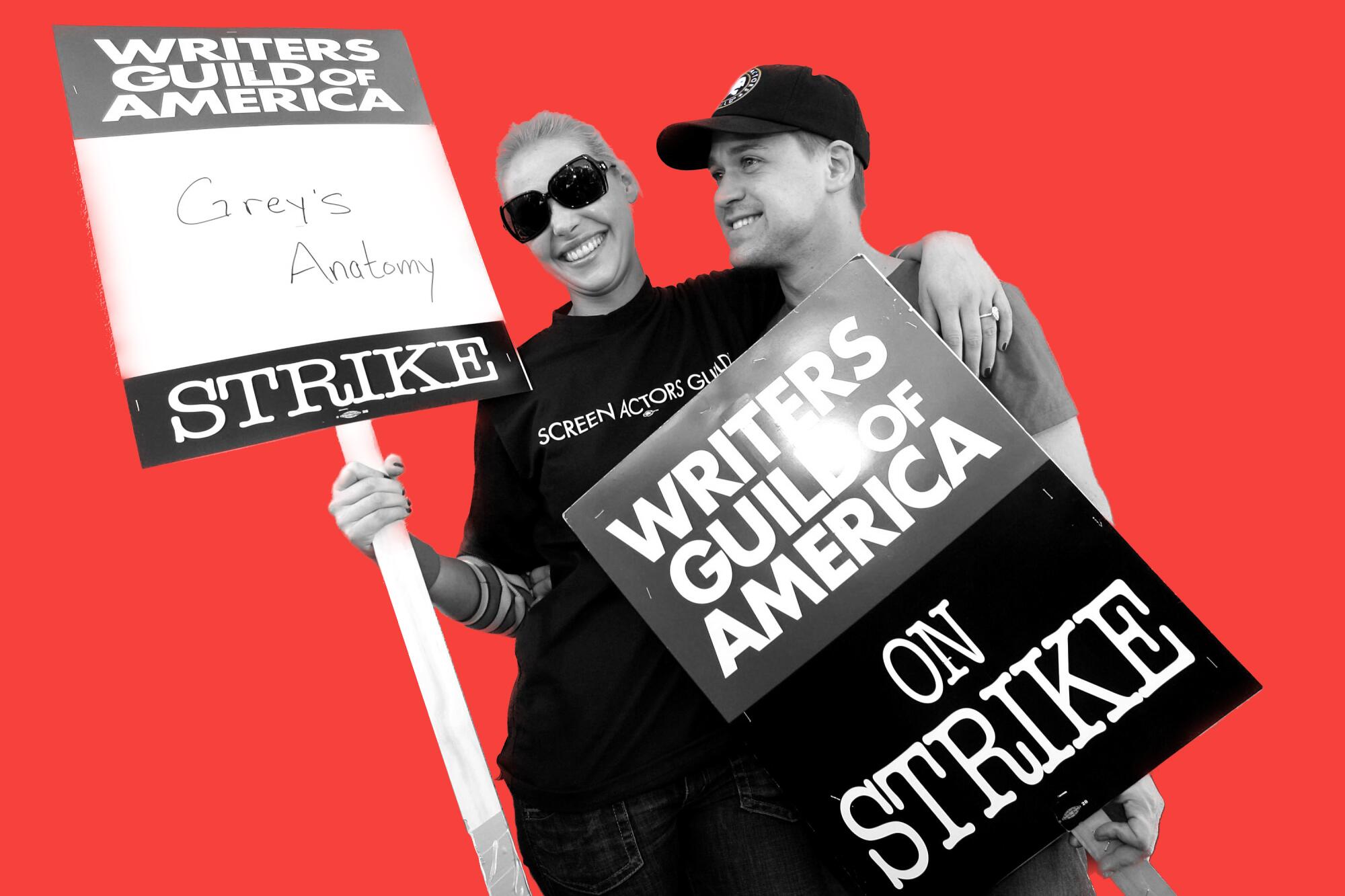
- Share via
The town shut down.
Decades of distrust, a growing pay gap and rising technology propelled nearly 12,000 members of the Writers Guild of America in November 2007 to join picket lines in defiance of Hollywood’s entrenched media companies.
The companies, led by the Walt Disney Co. and Fox, were determined to protect their bottom lines. Writers, in contrast, wanted to wrangle a bigger slice of the industry’s riches. After all, how successful would the entertainment industry be without its writers?
The bitter strike stretched 100 days, and both sides emerged bloodied.
Streaming has transformed television and led to a surge in content, but it also has squeezed Hollywood writers. Five Writers Guild of America members share their stories.
Writers lost work and lucrative contracts. The collateral damage extended to prop houses, hair stylists, carpenters and catering firms. Economic losses were estimated at as much as $2.1 billion. Production interruptions added to the pressures already facing broadcast networks — ABC, CBS, NBC and Fox.
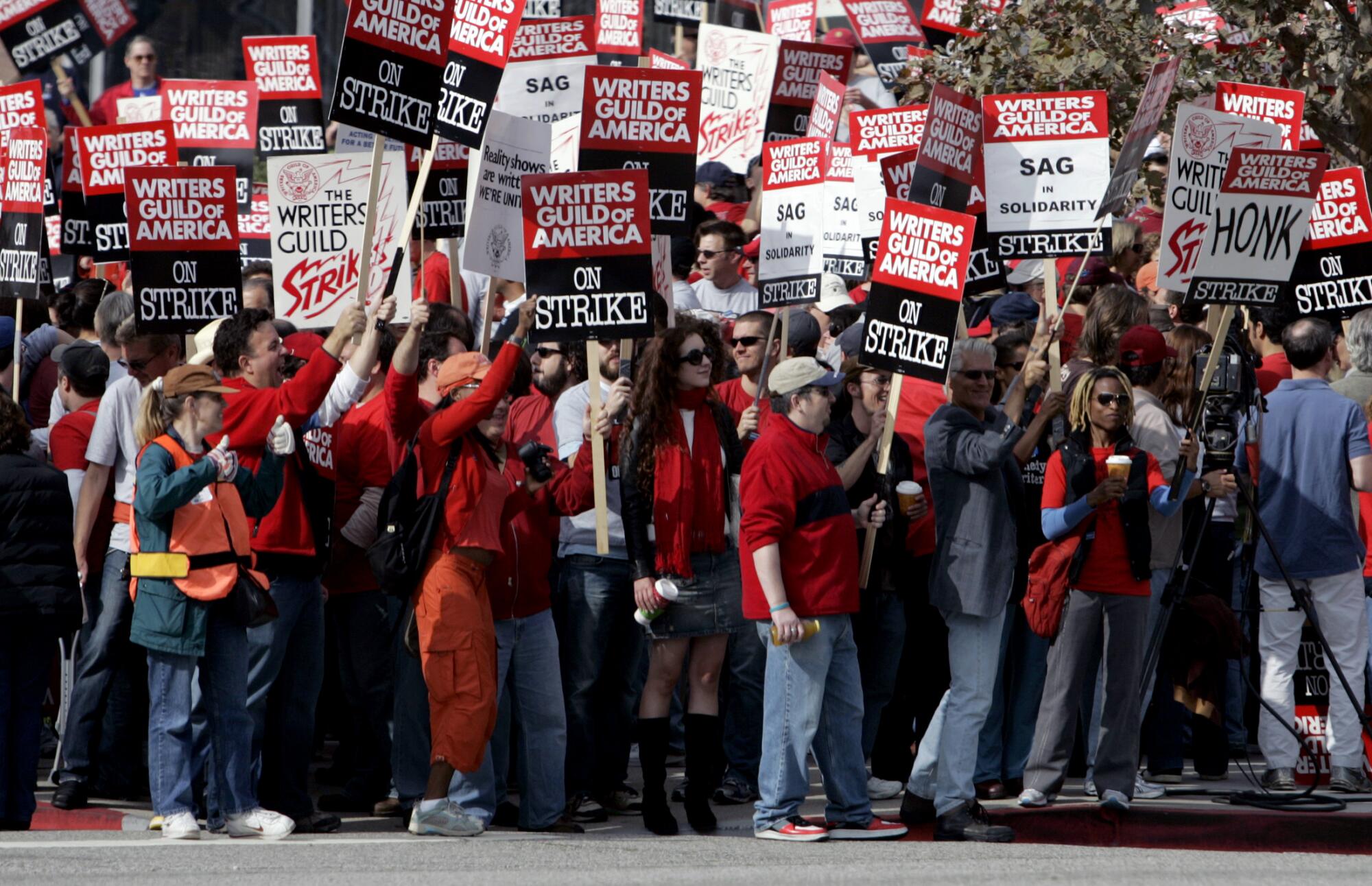
The strike was the moment Hollywood first faced its chaotic digital future.
Back then, TV networks were worried about the ad-zapping capabilities of digital video recorders, and Netflix didn’t seem like much of a threat. It mailed customers movie DVDs in red envelopes. Although the combatants didn’t see that Netflix would become the great disrupter, they did recognize that the shift to digital media would have profound consequences.
Those tensions have cast a long shadow over current talks between the WGA and the Alliance of Motion Picture and Television Producers to reach a new contract by May 1. The producers group now includes Netflix and tech giants Amazon Studios and Apple along with legacy producers NBCUniversal, Paramount Global, Sony Pictures Entertainment and Warner Bros. Discovery.
Observers see parallels between today’s climate and the previous combustible talks. Guild leaders have asked members to authorize a strike; results of that vote are expected next week.
Layoffs, hints of a recession and an uncertain future for streaming add up to contentious negotiations as the WGA looks for a new deal with Hollywood studios.
Last week, several WGA members took to social media to voice their support for the authorization, reminiscent of the broad support guild leaders fomented before their last walkout.
“It’s all about writers getting a fair share,” Daniel Kwan, the Oscar-winning writer and director of “Everything Everywhere All at Once,” wrote on Twitter. “It’s about maintaining a healthy middle/working class of writers in our industry. It’s about showing our collective strength as new tech threatens to take away our leverage.”
On the eve of contract negotiations, leaders of the WGA are pressing their case as to why writers deserve better pay in the streaming era.
Then, as now, a lack of trust was evident.
Studio bosses in 2007 were worried about the more aggressive stance of guild leaders, then-WGA West President Patric Verrone and Executive Director David Young, a veteran union organizer. (The WGA had fired its previous head for allegedly being too cozy with the studios.) Studios stockpiled scripts in preparation.
Writers entered talks feeling they’d been outmaneuvered in past negotiations. They were particularly burned by a formula used to calculate residuals payments for home video sales, including DVDs, which had become huge moneymakers for studios. Guild leaders wanted to boost those residuals.
AMPTP’s chief negotiator, the late Nick Counter, helped set a more adversarial stance. In an attempt to display strength, producers initially failed to show a willingness to give any ground. Instead, the companies suggested reworking existing formulas.
Writers Guild leaders quickly branded the offer as “rollbacks” and rallied members.
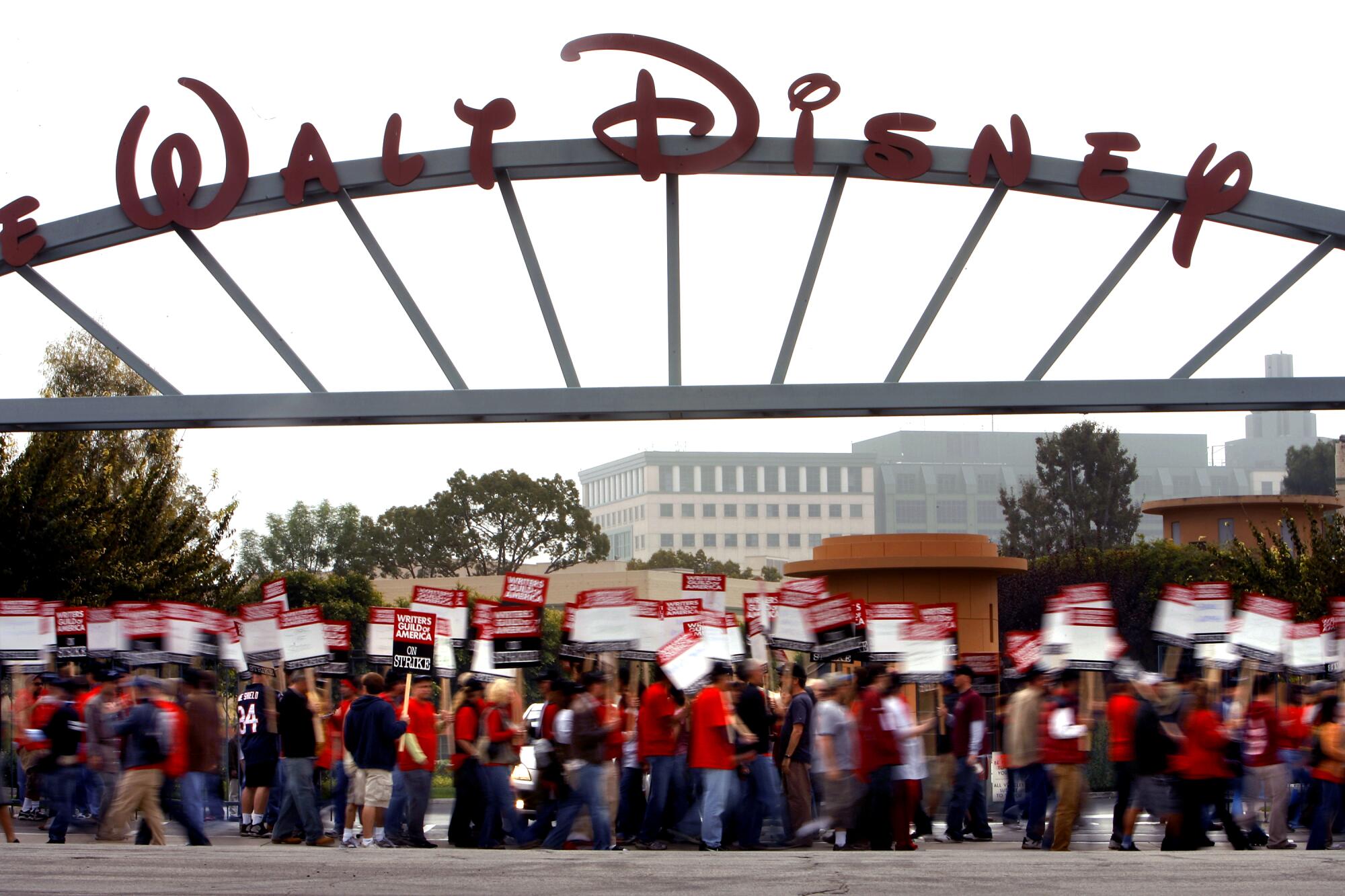
In a major concession on the eve of the strike, writers abandoned their DVD demands to focus on the internet.
“The strike was about the future of media and the future of writing, which we were all struggling to understand,” Verrone said. “We knew the world was going to change, and we needed to plant the flag.”
For weeks, some executives were dismissive of writers’ demands to address what was then called “new media.”
“The studios were posturing, saying: ‘This is a small sliver of our business, and we’re uncertain whether there’s going to be a lot of adoption because people preferred physical media,’” recalled David Smith, an economics professor at Pepperdine University’s Graziadio Business School. “The studios were saying [the internet] shouldn’t be a front-and-center negotiating point.”
One executive who was deeply involved on the studios’ side described being “caught in a fight of ignorance.”
“No one, at that time, predicted that the business would be able to get consumers to pay for programming that was distributed via the internet,” said this person, who was not authorized to speak publicly. “Everybody thought it was going to be an ad-supported business.”
For Verrone and other guild leaders, the 2007 strike proved the necessity of pressing for long-term gains, despite the costs and disruption.
“Unquestionably, it was a success,” Verrone said. “We know from other work areas — like in reality television — that if you don’t get jurisdiction from the jump, you’re never going to get it. It becomes a really high hill to climb.”
Studio executives, however, privately grouse that writers lost more than they gained — particularly after companies invoked so-called force majeure clauses in writer contracts midway through the strike. The move, a French term for “greater force,” enabled studios to cancel generous “overall deals,” which compensated TV scribes even if their shows were not picked up.
A similar scenario could play out in the event of another walkout.
The current negotiations are unfolding at a challenging time as most studio owners are desperate to cut costs. The pay-TV model is crumbling, the advertising market has been soft and Wall Street has demanding profitability — not just streaming sign-ups.
Some media companies are struggling to manage billions of dollars in debt incurred by recent acquisitions. And it’s unclear whether corporate chieftains would view a possible strike as a way, at least in the short term, to save money on production costs.
Executives at those firms have been scouring cupboards for projects to dump.
Disney has launched a program to cut $5.5 billion in costs, including eliminating 7,000 jobs.
“We’re already in a tenuous economic environment,” Smith said.
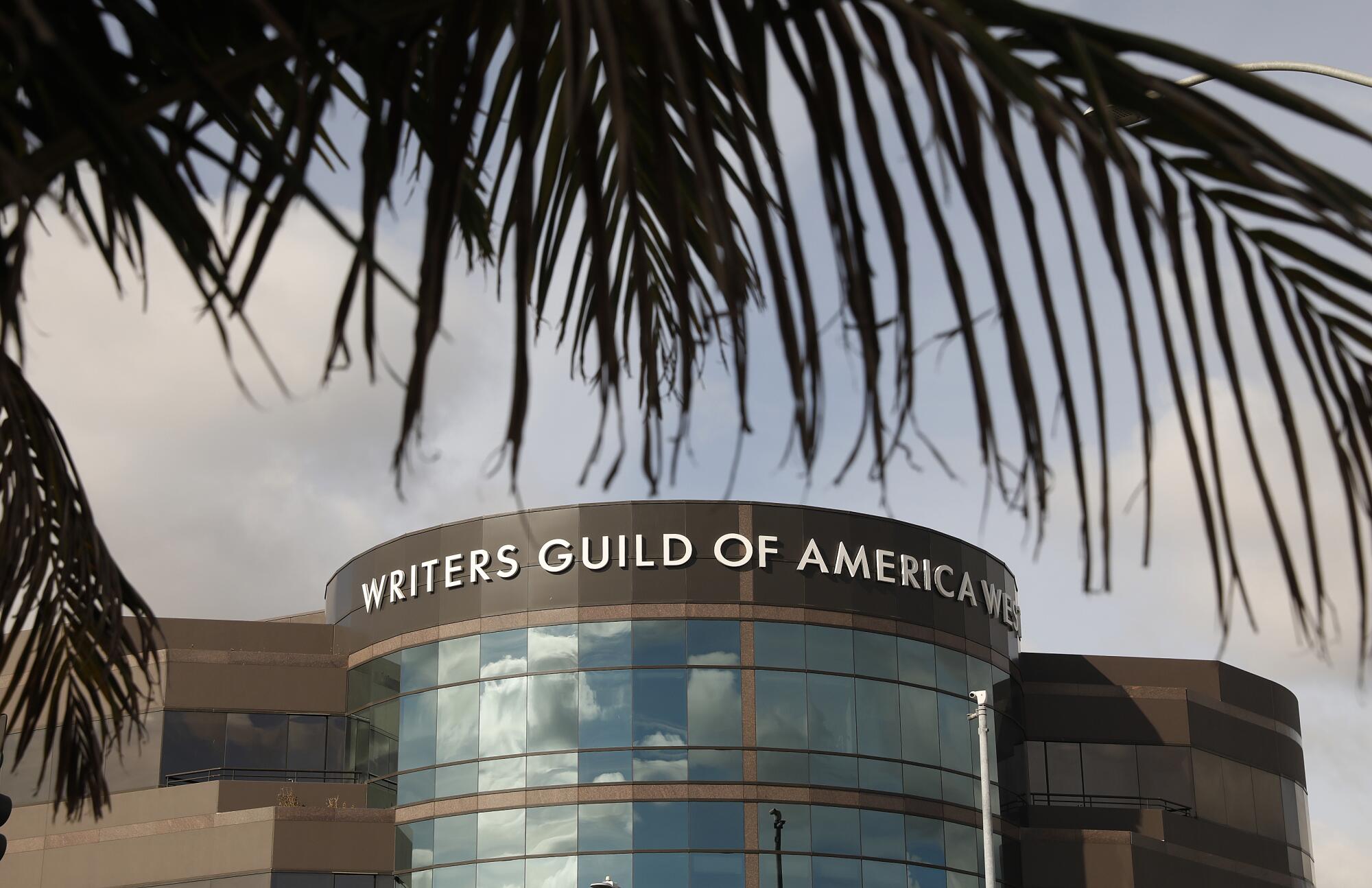
Writers and the AMPTP in February 2008 hammered out an agreement that doubled residual payments for films and TV shows sold online and secured the union’s jurisdiction for shows created for the internet.
The breakthrough came a few weeks after the AMPTP turned to another union, the Directors Guild of America, to negotiate its contract, which undercut some of the writers’ leverage.
“Some of the writers were being critical of the DGA for sitting down and trying to work out a deal when they were out on strike,” said prominent attorney Ken Ziffren, who has long represented the DGA. “Whether that is something that will happen again in 2023, no one knows.”
The DGA’s contract with the studios expires just weeks after the WGA’s, similar to 2008.
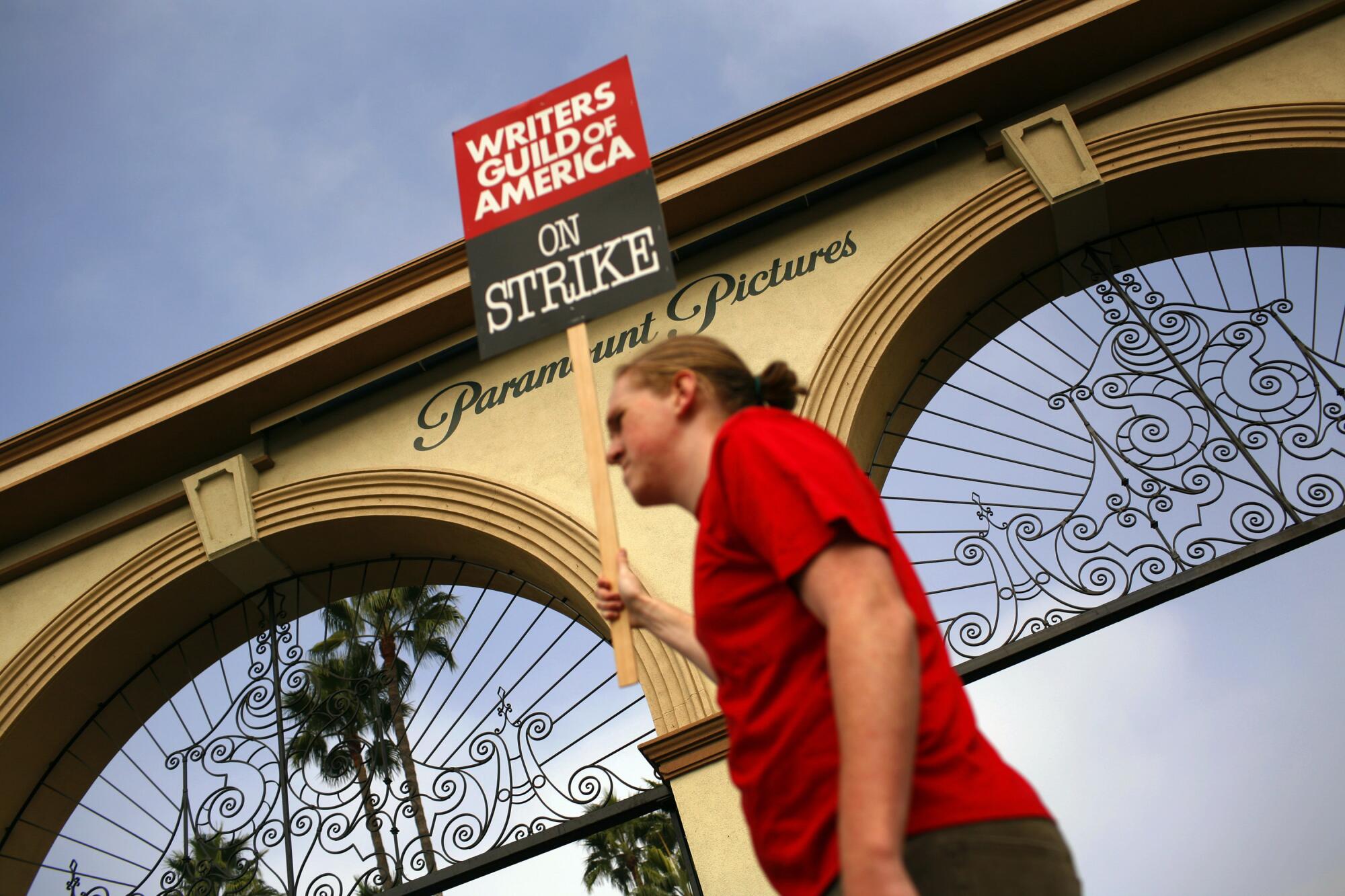
And, just like before, changes in technology hang over the talks.
“Again, the major issues are about how technology affects the media and entertainment businesses,” Ziffren said.
He noted a sticking point has been streaming companies’ refusal to provide data to demonstrate how well, or how poorly, individual shows perform. Without such metrics, writers and other talent feel they are kept in the dark.
“My personal opinion is that, transparency in data is desperately needed today, if we’re going to have labor peace,” Ziffren said.
As AI is becoming more ubiquitous, the Writers Guild is proposing some guidelines for how to regulate it and avoid writers being cut out of the creation of TV and film.
Another lesson from the past, according to Smith and Verrone, is that studios should not underestimate the WGA’s solidarity.
“The writers have generally been a very uniform and united group,” Smith said. “It’s important for the studios to recognize that the threat of the work stoppage is very real.”
That’s the most important takeaway from 2007-08, Verrone said.
“Management didn’t think we would strike — and we did,” Verrone said. “They didn’t think we would last — and we did. And they didn’t think that we’d win. And we did. I don’t think that this year is going to be any different.”
More to Read
Inside the business of entertainment
The Wide Shot brings you news, analysis and insights on everything from streaming wars to production — and what it all means for the future.
You may occasionally receive promotional content from the Los Angeles Times.




